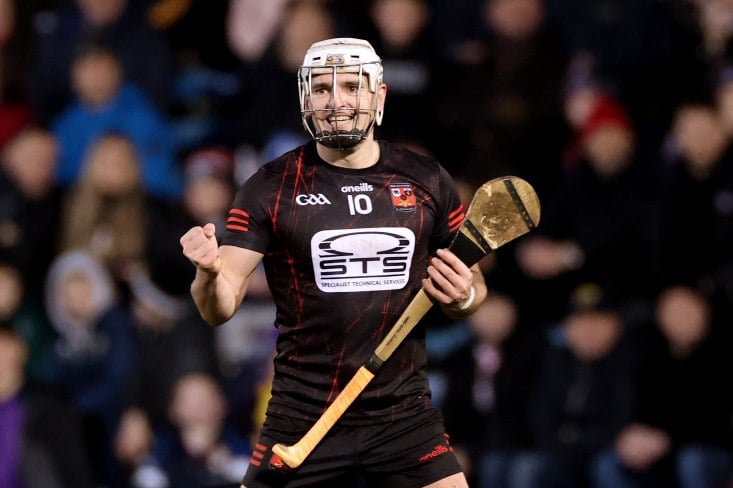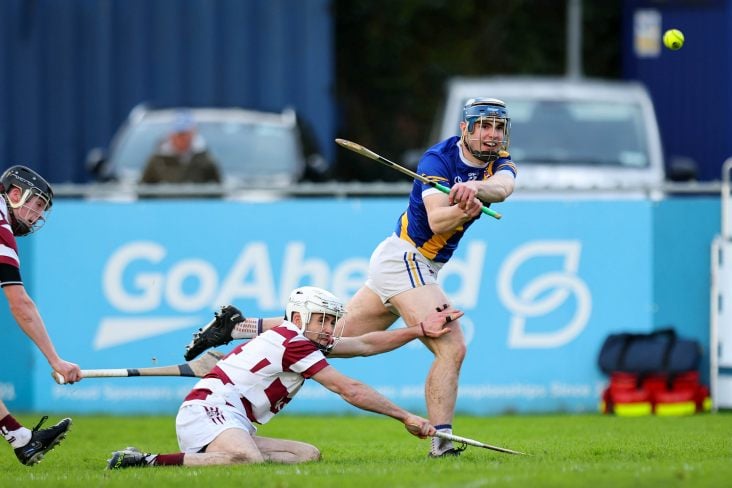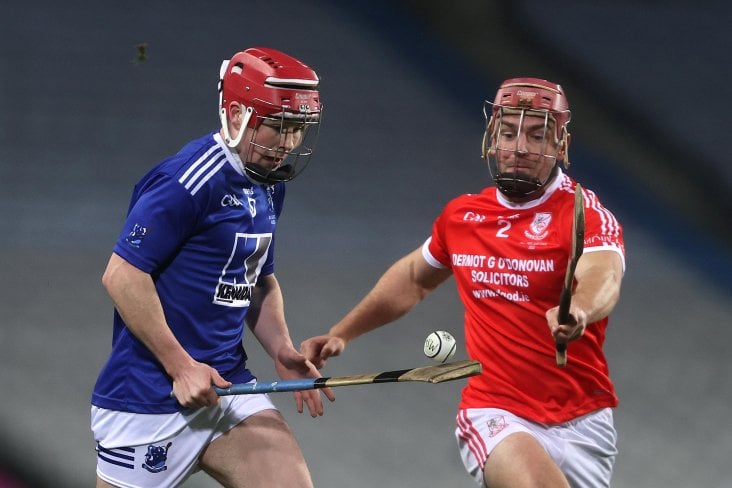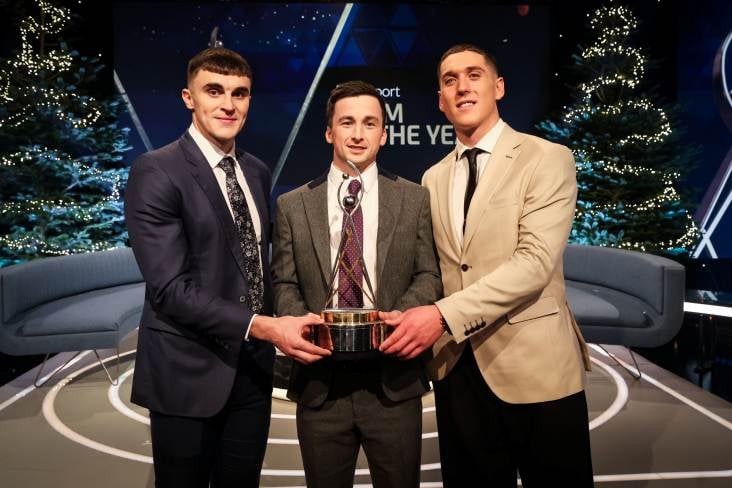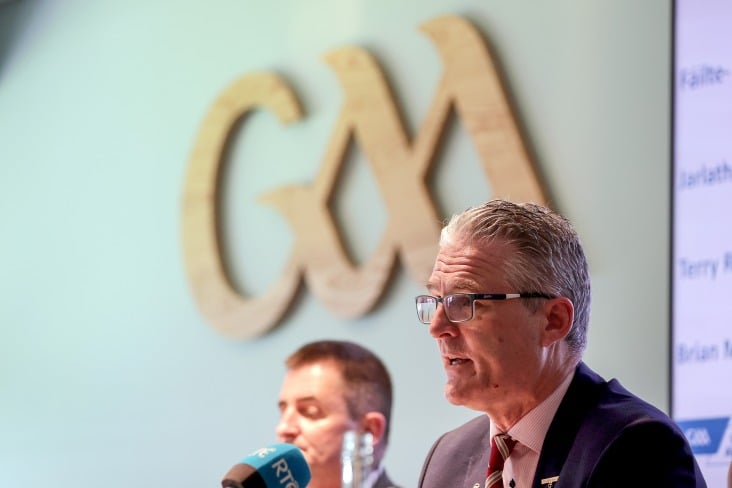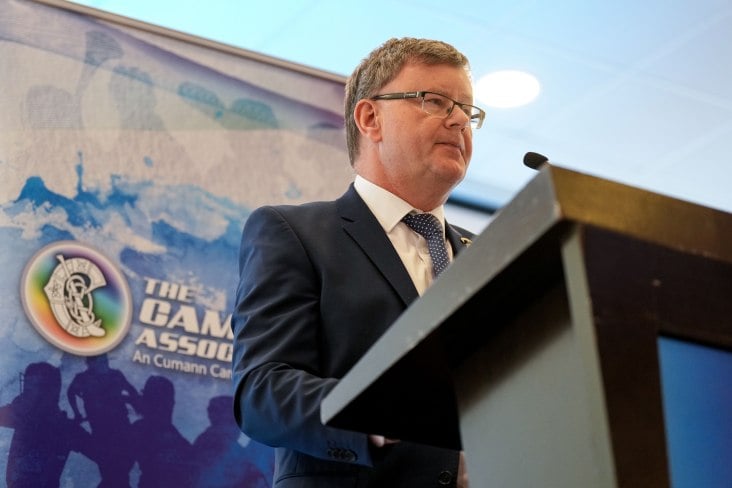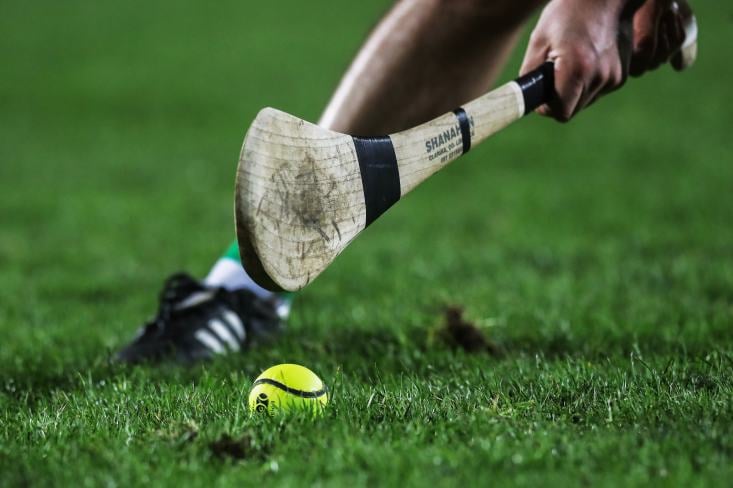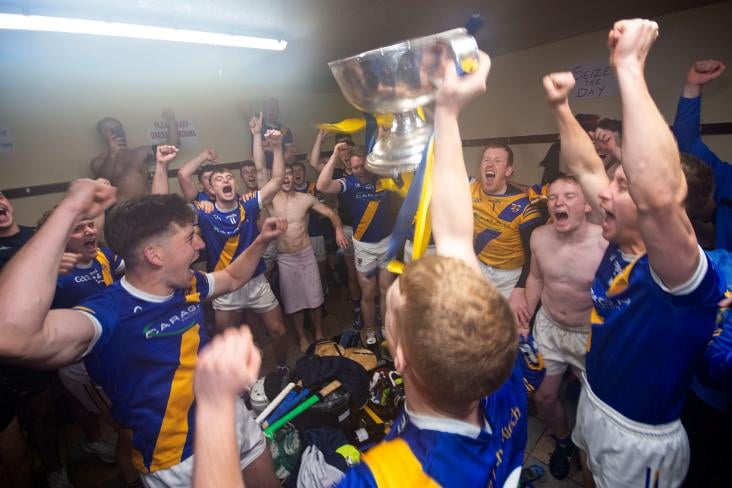One Leinster title Meath can be proud of!
November 30, 2009Even though Ireland won a couple of Triple Crowns during the 1980's, Sean Boylan guiding the counties footballers through the most glorious period in their history ensured GAA still held sway over everything else in terms of popularity. It was the same in most other places at the time too.
The first real sign of an upsurge in popularity for the oval ball code came with the advent of the All Ireland League in the early '90's. And right from the off, many of the county's talented GAA players were immersed therein.
Having dabbled a bit in Rugby with Currie in Scotland while still part of Sean Boylan's setup, David Beggy went on to play a significant role for Blackrock College. The injury-cursed Hugh Carolan and Walterstown's John Davis and Brian McCormack and Ronan Conaty were others to make names for themselves when they switched codes. So too did Graham Geraghty and Simon Crawford for a period while John McDermott gave it a go with Belvedere. Apart from Crawford, David Clare was another former Dunboyne player to make quite a name for himself. He won an AIL medal with St Mary's College in 1999. Apart from players, it must also be remembered that Dunboyne masseuse Martin Regan - who has assisted many top sports people across many codes over the years - continues to make a valued contribution to the Irish Rugby scene too.
Shane Horgan scaled greater heights than any of them though. Having played Minor with Meath in 1996 alongside the likes of Nicky Horan and Fergus McMahon, he cut his teeth in the Rugby world with Lansdowne in 1997. A Leinster call up quickly followed and since then he has served as centre partner to either Gordon D'Arcy or Brian O'Driscoll and has also featured regularly on the wing. When he began his career, fellow Meath native Angus McKeen was also part of the Leinster contingent.
While he was part of Eddie O'Sullivan's Irish side that captured a couple of Triple Crowns, like many exponents of the code from the Royal County, much of Horgan's career has been punctuated by injury lay offs. Some of which forced the former Bellewstown player to sit out the entirety of the Grand Slam winning campaign in Declan Kidney's first term in charge.
That more or less mirrored the frustrations felt with Leinster since the Heineken Cup began. The lowest points of which both ironically arrived at Lansdowne Road. Namely. A semi final demolition by Munster in 2006 and a shock defeat to Perpignan before that on a day when Munster had already lost to Toulouse.
Ironically, it would be their comprehensive thrashing of Munster at the penultimate hurdle that finally convinced the naysayers and doubters that 2009 would indeed by Michael Cheika's side's year.
The journey had begun long before that however when four first half tries - from Horgan, O'Driscoll, Rocky Elsom and Felipe Contepomi set them up for a 27-16 win against Edinburgh on October 11th.
A week later at the RDS, former Moynalvey resident Devin Toner was introduced during a first half which saw O'Driscoll cross the line twice as the home side led London Wasps by 15 to 11 at half time.
Thereafter, they held their opponents scoreless as five point scores from Contepomi (two) and Luke Fitzgerald and Rob Kearney sealed a 41-11 success.
After a two week break, there arrived what could be earmarked as the first real declaration of intent by those who had, so often, been the bridesmaids of European Rugby. French teams always command respect on the European stage, so when Castres were disposed of with 30 points to spare it said a lot. Mind you, that couldn't have been predicted at half time as three Jonathon Sexton penalties were the only scores in the game.
Matters were quickly put to bed in the second half though as tries from Bernard Jackman and O'Driscoll and former Munster player Stephen Keogh propelled Leinster to victory by 33 points to 3.
However, the next two games proved beyond all doubt the old adage about it being all on the day. Having had 30 points to spare a week earlier and despite two first half tries from Girvan Dempsey and Sexton, Castres' sole scorer, fly half Langardere, did enough damage to inflict a stunning 11-15 defeat on the Irish side.
As bad as that appeared, a week later the wheels seemed to be totally off the wagon as Wasps also reversed the form of the earlier fixture. Shane Horgan returned after another injury enforced absence as Toner missed out for the same reason. In the end none of that made any difference though as four Contepomi penalties was the only response Leinster could muster to a Serge Betson try and the kicking excellence of the immensely talented Danny Cipriani.
January 25th was the first time during the season that both Devin Toner and Shane Horgan started a game together. But that was about as much as there was to get excited about as four Contepomi penalties were enough to ensure home and away successes were recorded over Edinburgh in a dour affair.
There then followed a break for the unforgettable Six Nations campaign. With all the euphoria and hype that brought about, those of a superstitious nature might have said an Irish name was 'on' the Heineken Cup. Few would dare wager which one though. The long held view that at the business end of competitions quantity counts for more than quality certainly rang through.
After Munster had opened Easter Sunday with a swashbuckling sidestepping of NS Ospreys at Thomond Park, the quality of fare was completely at the other end of the scale at The Stoop that evening. By any standards, three scores over 80 minutes represents poor enough fair. That the decisive pair came from placed balls by Contepomi only served to underline the fact.
Not that any of that mattered a jot to Leinster or their following. It set up the encounter all of Ireland - maybe all of Europe - had longed for - Leinster vs. Munster. Even though it was a semi final rather than the actual showpiece, surely an Irish Grand Slam winning season could have no better finale. When what was the obvious decision - to stage the encounter at Croke Park - was made, the stage seemed set for what was going to be one of the greatest occasions in Irish sporting history.
In ways, it was all that, but not in the way most would have expected. Shortly before the 'main event' the two sides met in the Magners League in Limerick. Munster won pulling up, Leinster didn't score. Aside from the fact the vanquished had been left with more motivation material than ever before, coming as close as it did to the one that really counted, superstition said it could've been the worst thing to possibly happen from a Munster perspective.
While the game turned out to be rather lopsided in Leinster's favour, several factors marked as a day even greater significance than just one game. Maybe it signaled the end of one era and the beginning of another. From a Meath viewpoint, it was an especially memorable day as four people with strong connections featured during, with Toner and Horgan being opposed by Denis Hurley and Niall Ronan, albeit from the bench in the case of the latter pair.
Ronan last appeared in Croke Park in 2000 as a Meath Minor footballer. Like Horgan, gut feeling suggests the former St Colmcille's player would've been destined for stardom had he not gone the other road.
Ironically, he began his career in the blue of his native province but it wasn't until he went south that he began to blossom. This was never more evident than when was supposedly a Munster second string came within seconds of beating the All Blacks at the official re-opening of Thomond Park.
If one was to subtitle the eagerly awaited showdown as a battle of the Meath men, it was definitely Toner and Horgan that held sway. It seemed extremely fitting that the latter got a clear run just in time to be part of what turned out to be his team's most glorious season.
Much of the pre match build up centred - unfairly or otherwise - on how Contepomi had fluffed his lines when last the sides locked horns at the same stage. Seeing him limp off injured in the early minutes was a sure sign the expected script could be shredded. As it transpired, his departure was the cue for replacement fly half Sexton to step up and become the especial hero.
However, as if to further affirm the view that it was to be Leinster's day, before departing, the originally selected Argentine number 10 had silenced his critics when lofting over a drop goal to open the scoring.
Even though Ronan O'Gara replied instantly into the Hill 16 goals, even at that stage, the sense was that Tony McGahan's troops were only hanging on.
A Sexton penalty followed by the contest's opening try from Gordon D'Arcy after 31 minutes put the first clear daylight between the sides.
While O'Gara again split the posts at the other end to leave it 11-6 at the midway point, the air of inevitability about the second half was palpable.
So often have Munster been seen overcoming the seemingly impossible, temptation was to expect them to pull it out of the fire yet again. Then again, the old saying about going to the well once too often had to come through some day. Try as they might to prosper with one of their mighty heaves, Munster couldn't get what the needed to sustain themselves at the game was quickly killed off when Luke Fitzgerald and Brian O'Driscoll both went over for 'majors' midway through the second half. Thus earning themselves the precious final ticket they had so long coveted, on a somewhat hard to believe 25-6 scoreline.
With a final berth secured, it is probable that one of Leinster's main worries in the build up to May 23rd was a fear that they may have peaked too early in endeavoring to overcome the old foes. And with the most decorated team in the competition's history, Leicester Tigers, at the final hurdle - after they had come through a bizarre penalty kick conclusion to their own semi - that was one thing the holders of Irish hopes could not afford if they were to make it back to back Irish wins in the competition and the perfect round off to the Grand Slam winning season.
Now, it goes without saying that every precaution possible would've been taken to ensure every eventuality was covered. That said, it is often the case that an unsung hero will emerge from the shadows on Final day.
Perhaps there has never been a more fitting one than Shane Horgan. Given what he has endured in recent times, that he was able to play at all was a fine achievement. And it was clear that once the long sought after chance arrived, he was determined to grab it with both hands.
Meath's most famous Rugby player was at the forefront of everything Leinster did and had what must rank as one of the finest games of his life.. Particularly in creating two of the three penalties Jonathon Sexton had converted by the 24th minute and with what was surely a try saving tackle at the other end.
Yet, despite all that positivity, a messed up line out allowed Ben Woods in for a try for the English side which their fly half Dupuy has little difficulty in converting to leave the serial winners 13-9 to the good at the break.
When he slotted another penalty shortly after half time, it seemed to leave Leinster in a very dicey position. Incredibly, however, it turned out to be Leicester's last score.
Eight minutes in, the Irish representatives got the break they so badly needed. Brian O'Driscoll darted through a gap - how often has he done that? - to put Jamie Heaslip in for the score which, when converted by Sexton, tied the scores.
The rest of the contest was a strange, nail-biting affair. There wasn't a score for another 22 minutes and after Sexton did curl over what transpired to be the winner - from the touchline - after 70 minutes, there wasn't a score for the remainder of the contest either.
It was a long overdue success. A triumph for perseverance, both for the Leinster team and for Shane Horgan at a individual level. Having seen Ulster and Munster triumph before them and suffered so much heartache, Leinster deserved their chance to lift the silverware. As has been said, it was a thoroughly fitting end to the best season Irish Rugby has had since Jack Kyle last led a Grand Slam winning team in 1948. Meath can be very proud of the role its' sports people played in making it happen. Tweet
